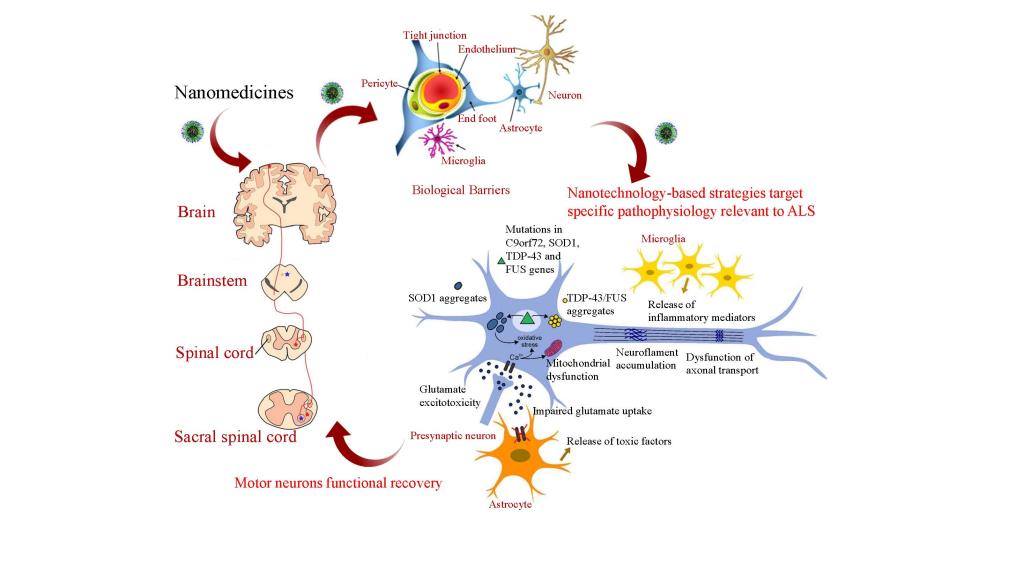Abstract
Amyotrophic lateral sclerosis (ALS), also known as motor neuron disease (MND), is a progressive neurodegenerative disease that affects both upper and lower motor neurons, which results in loss of muscle control and eventual paralysis. Currently, there are remained challenges regarding efficient drug delivery into the central nervous system (CNS). These challenges can be attributed to multiple factors including the presence of the blood-brain barrier (BBB), blood-spinal cord barrier (BSCB), as well as the inherent characteristics of the drugs themselves (e.g. low solubility, insufficient bioavailability/bio-stability, “off-target” effects) etc. As a result, conventional drug delivery systems may not facilitate adequate dosage of the required drugs for functional recovery in ALS patients. Nanotechnology-based strategies, however, employ engineered nanostructures that show great potential in delivering single or combined therapeutic agents to overcome the biological barriers, enhance interaction with targeted sites, improve drug bioavailability/bio-stability and achieve real-time tracking whist minimizing the systemic side effects. This review provides a concise discussion of recent advances in nanotechnology-based strategies in relation to combating specific pathophysiology relevant to ALS disease progression and investigates the future scope of using nanotechnology to develop innovative treatments for ALS patients.

https://doi.org/10.1016/j.mtbio.2020.100055.
